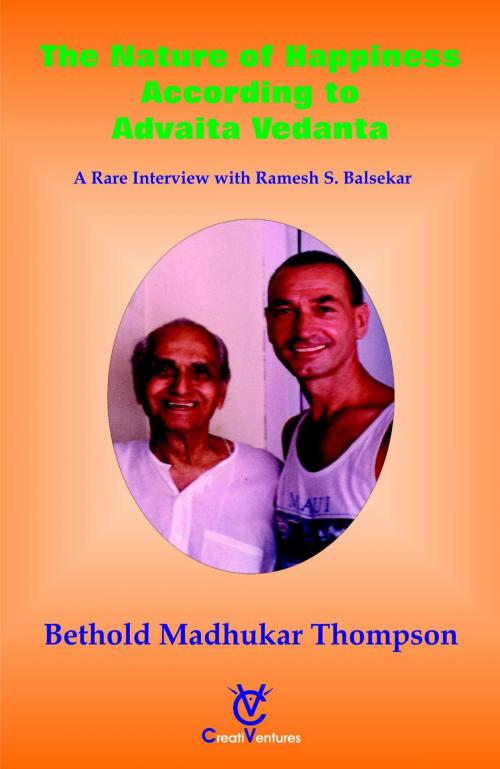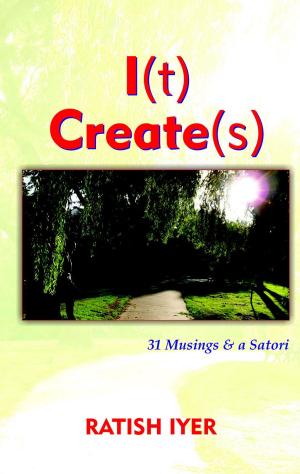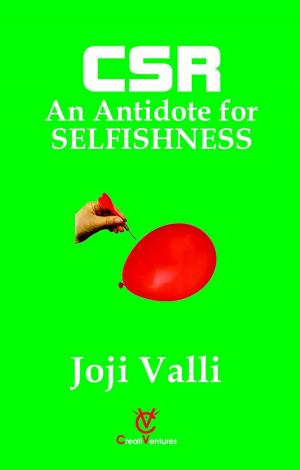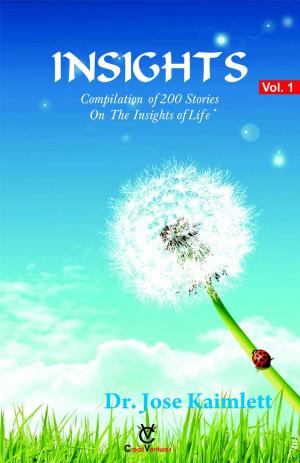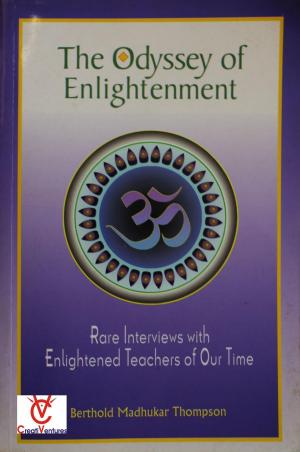The Nature of Happiness According to Advaita Vedanta
Enlightenment Series, #7
Nonfiction, Religion & Spirituality, Eastern Religions, Hinduism, Inspiration & Meditation, Mysticism, Philosophy| Author: | Madhukar Thompson | ISBN: | 9781516396153 |
| Publisher: | CreatiVentures Publishing | Publication: | August 17, 2015 |
| Imprint: | Language: | English |
| Author: | Madhukar Thompson |
| ISBN: | 9781516396153 |
| Publisher: | CreatiVentures Publishing |
| Publication: | August 17, 2015 |
| Imprint: | |
| Language: | English |
Disciple: I’m seeking the Truth, the ultimate Reality.
Guru: Yes. My definition of enlightenment is what colour is for the blind man. We can describe colour to him and he will understand and know it intellectually, as a mental concept. But what it really is as an experiential experience, he will only know after eyesight has been given to him. Or, say we have a glass of water in front of us. The water exists as it is; waterness is its nature. Speaking of it, is water in terms of the mind. Such water is a concept. The word water is not water. No matter how detailed we describe it—even if it is described by 100 Einsteins—such a description will never be what water really is. We have the triad: the subject (the seer), the object (water) and the process of perceiving water. We can know water only when we drink it, shower with it, etc. That knowing then is a direct existential experience. That knowing is drinking is quenching thirst, therefore, is blissful. The three-fold aspects knowing, drinking and being blissful are one in the event called drinking. It is an impersonal event that occurs as part of the functioning of Totality. It is not an act of an individual "me" embodied in a body-mind organism with the sense of personal volitiona and doership. While drinking, the triad drinker, water, and the process of drinking is dissolved. Drinking occurs as one impersonal event, comprising the drinker, the water and the process of drinking. In this case drinking is the impersonal "What-is." The actual drinking of water is not a concept. At the moment of drinking there is no individual, separate "me"-entity, a drinker drinking water. The "me" comes in afterwards as a further, additional "me"-thought as in "’I’—drank water. ‘I’ experienced drinking water." The fact is, while drinking water happened there was no "me." A body-mind organism was drinking water as part of the functioning of Totality. When we inquire closely, we find that such a "me"-entity does not exist, except as a thought, as a notion, as a concept.
Disciple: I’m seeking the Truth, the ultimate Reality.
Guru: Yes. My definition of enlightenment is what colour is for the blind man. We can describe colour to him and he will understand and know it intellectually, as a mental concept. But what it really is as an experiential experience, he will only know after eyesight has been given to him. Or, say we have a glass of water in front of us. The water exists as it is; waterness is its nature. Speaking of it, is water in terms of the mind. Such water is a concept. The word water is not water. No matter how detailed we describe it—even if it is described by 100 Einsteins—such a description will never be what water really is. We have the triad: the subject (the seer), the object (water) and the process of perceiving water. We can know water only when we drink it, shower with it, etc. That knowing then is a direct existential experience. That knowing is drinking is quenching thirst, therefore, is blissful. The three-fold aspects knowing, drinking and being blissful are one in the event called drinking. It is an impersonal event that occurs as part of the functioning of Totality. It is not an act of an individual "me" embodied in a body-mind organism with the sense of personal volitiona and doership. While drinking, the triad drinker, water, and the process of drinking is dissolved. Drinking occurs as one impersonal event, comprising the drinker, the water and the process of drinking. In this case drinking is the impersonal "What-is." The actual drinking of water is not a concept. At the moment of drinking there is no individual, separate "me"-entity, a drinker drinking water. The "me" comes in afterwards as a further, additional "me"-thought as in "’I’—drank water. ‘I’ experienced drinking water." The fact is, while drinking water happened there was no "me." A body-mind organism was drinking water as part of the functioning of Totality. When we inquire closely, we find that such a "me"-entity does not exist, except as a thought, as a notion, as a concept.
